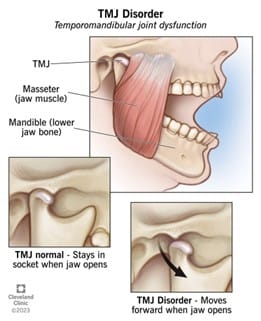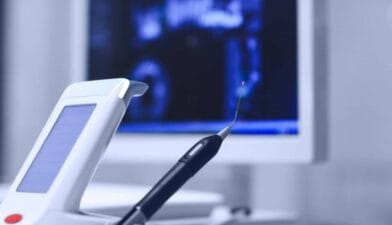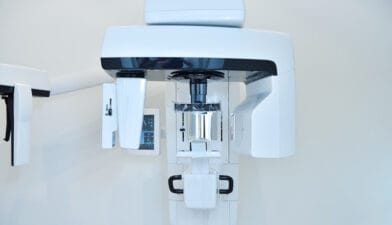Temporomandibular Joint (TMJ) is a hinge that connects your jaw to the temporal bones of your skull, which are in front of each ear. It lets you move your jaw up and down and side to side, so you can talk, chew, and yawn.
TMJ dysfunctions are conditions affecting your jaw joints and surrounding muscles and ligaments. These conditions can cause several issues, including jaw pain, headaches, difficulty opening and closing your mouth, and even ear pain or tinnitus.
The severity of TMJ disorders can vary, with some individuals experiencing mild discomfort while others suffer from chronic, debilitating pain that affects their daily lives.




Resting the jaw, avoiding hard foods, and applying warm compresses can relieve symptoms.
Over-the-counter pain relievers, muscle relaxants, or anti-inflammatory medications can help manage pain.
Exercises designed to strengthen and stretch the jaw muscles.
Techniques like mindfulness and relaxation exercises to reduce jaw tension.
Mouthguards or splints to prevent teeth grinding and correct jaw alignment.
This latest technology provides pain relief by stimulating the joints and muscles to increase blood flow and relaxing facial muscles and joints.
Do You Have Any Questions?